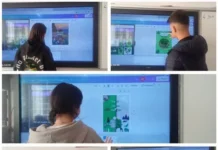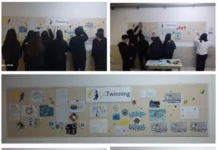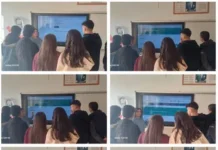THE EFFECTIVENESS OF USING TABLET COMPUTERS IN TEACHING VOCABULARY TO TURKISH EFL TEENAGE STUDENTS
This study aims at investigating the effectiveness of using tablet computers in teaching vocabulary to Turkish EFL teenage students. It hypothesizes that the tablet computer has a potential to positively affect foreign language learning, particularly vocabulary instruction. It is expected that vocabulary development would be significantly better for the participants who use software materials (experimental group) than the ones who use the material spresented in the coursebook (control group). The sample group was composed of 26 male and 34 female ninth grade Turkish EFL teenage students (totally 60 students). The experimental group used tablet computers in the classroom under the control of the researcher. The control group had traditional instruction using their textbook in the classroom under the control of the researcher. Both groups of students were given pretests and post-tests in respect to 25 vocabulary items before and after a foursession and eight-hour of treatment period. The students of the experimental group were also given a questionnaire to analyze their views about using tablet computers as part of their courses. The results indicated that the experimental group liked to work with tablet computers and that they learned and retained more vocabulary than the control group. The study also revealed that tablet computers are ideal tools for creating an interactive and collaborative environment for vocabulary learning.
Key Words: Teaching Vocabulary, CALL, MALL, CAVI, Tablet Computers, Fatih Project, Teaching Foreign Languages
Fitnat TAVACI
Recep Tayyip Erdoğan Anadolu İmam Hatip Lisesi, İngilizce Öğretmeni











